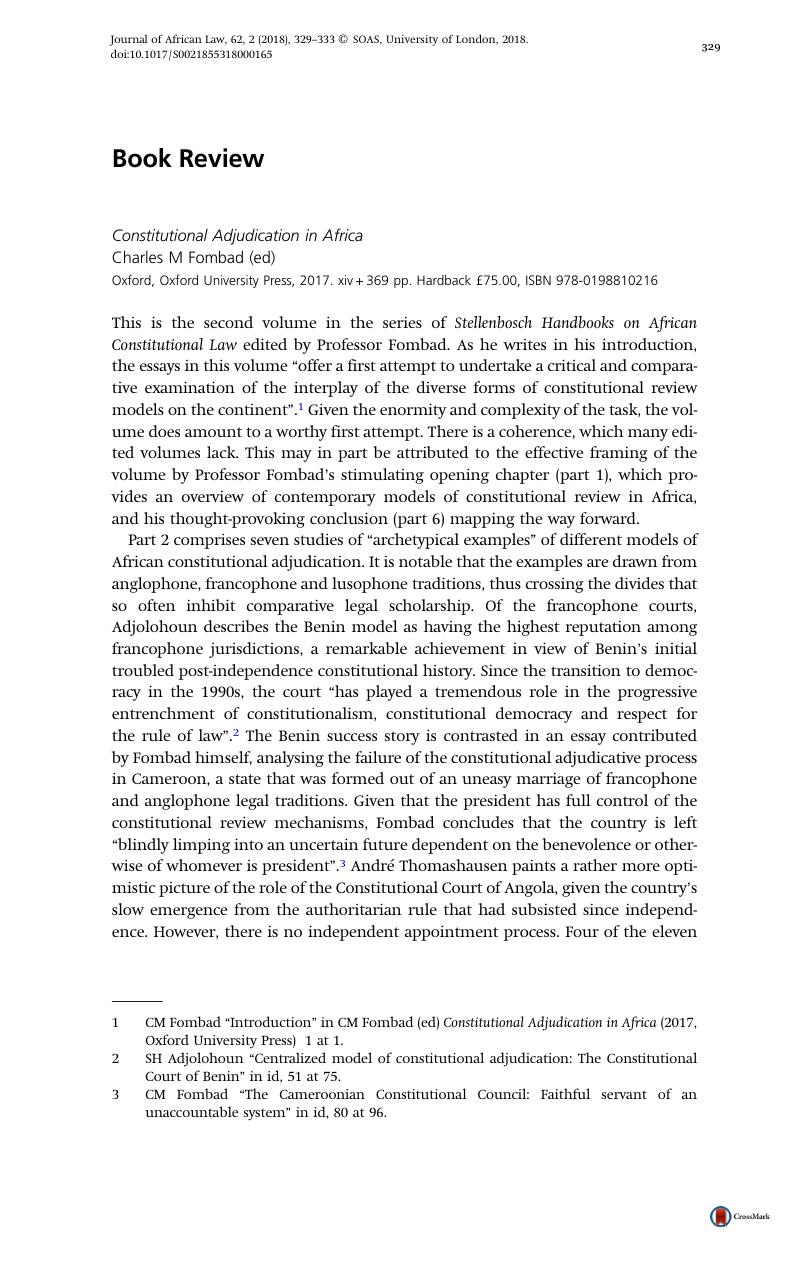No CrossRef data available.
Article contents
Constitutional Adjudication in Africa Charles M Fombad (ed) Oxford, Oxford University Press, 2017. xiv + 369 pp. Hardback £75.00, ISBN 978-0198810216
Review products
Published online by Cambridge University Press: 14 June 2018
Abstract

- Type
- Book Review
- Information
- Copyright
- Copyright © SOAS, University of London 2018
References
1 Fombad, CM “Introduction” in Fombad, CM (ed) Constitutional Adjudication in Africa (2017, Oxford University Press) 1Google Scholar at 1.
2 SH Adjolohoun “Centralized model of constitutional adjudication: The Constitutional Court of Benin” in id, 51 at 75.
3 CM Fombad “The Cameroonian Constitutional Council: Faithful servant of an unaccountable system” in id, 80 at 96.
4 A Thomashausen “The Constitutional Court of Angola: Judicial restraint in a dominant party state” in id, 97 at 99.
5 M Killander “The effects of international law norms on constitutional adjudication in Africa” in id, 209 at 217.
6 BR Dinokopila “The impact of regional and sub-regional courts and tribunals on constitutional adjudication in Africa” in id, 225 at 231.
7 M Killander “The effects of international law norms”, above at note 5 at 222.
8 [1992] LRC (Const) 623, Botswana CA.
9 SH Adjolohoun “‘Made in courts’ democracies? Constitutional adjudication and politics in African constitutionalism” in Fombad (ed) Constitutional Adjudication, above at note 1, 247 at 286.
10 Rautenbach refers to the spirit of ubuntu as being “captured in the belief that the well-being of the individual and that of the community are inextricably linked”: C Rautenbach “Exploring the contribution of ubuntu in constitutional adjudication: Towards the indigenization of constitutionalism in South Africa” in id, 293 at 294.
11 CM Fombad “Constitutional adjudication and constitutional justice in Africa's uncertain transition: Mapping the way forward” in id, 351 at 352.
12 See Odinga v Independent Electoral Boundary Commission [2018] 1 LRC 498.


